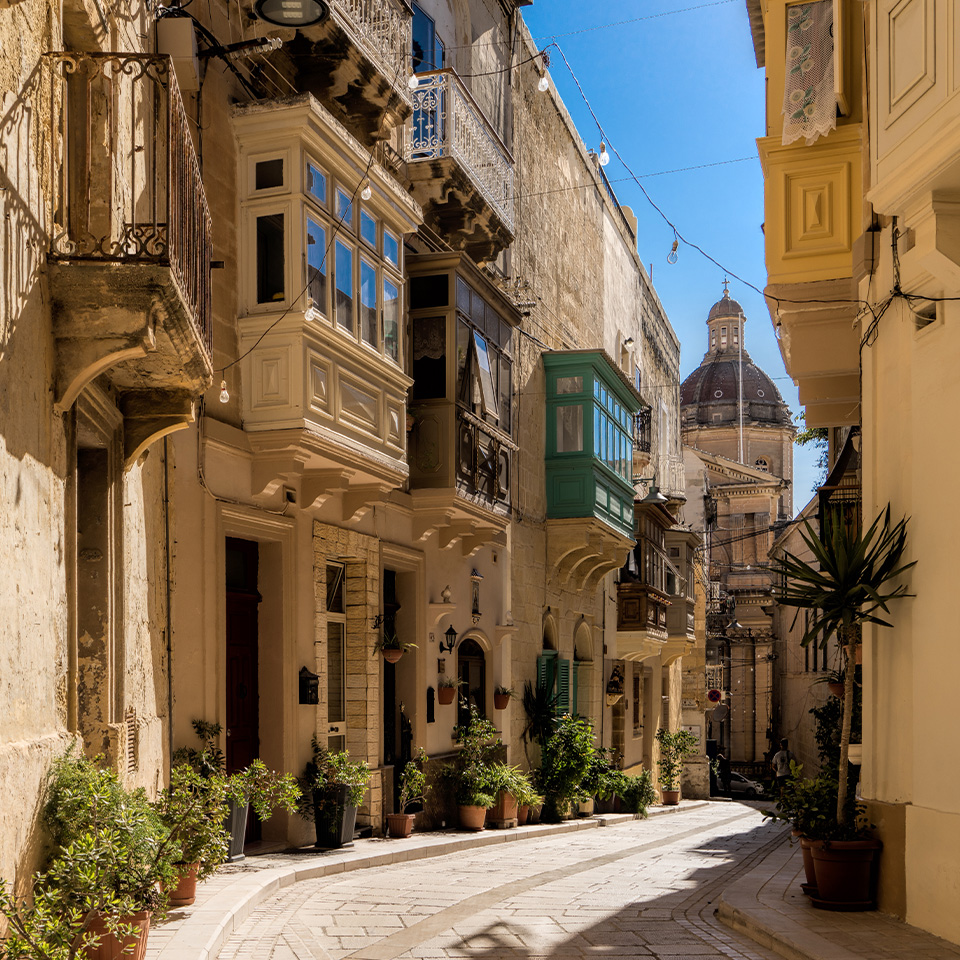Who Is This For?
International professionals, retirees, investors and HNW individuals seeking predictable, rules-based taxation in Malta without necessarily becoming Maltese tax residents.
What This Means for You
If you are evaluating Malta as a jurisdiction for residence or structuring, understanding how Special Tax Status works, what it offers, and how it differs from standard Maltese tax residence is essential for compliant, strategic planning.
Understanding Special Tax Status in Malta
A Special Tax Status in Malta is a formal fiscal designation granted under Maltese law to individuals who meet specific conditions relating to property ownership or rental, financial independence, insurance coverage and suitability checks.
It provides a preferential tax treatment, most commonly:
- A 15% flat rate on foreign income remitted to Malta, and
- A minimum annual tax, depending on the specific status.
Importantly, Special Tax Status focuses on the type of taxpayer, not the nature of income. Unlike typical systems that distinguish between “employment income”, “investment income”, or “capital gains”, Malta’s special statuses revolve around:
- whether the individual is a status beneficiary, and
- whether the income is foreign-sourced and remitted or arises in Malta.
This principle is central to the Maltese tax system and is frequently misunderstood.
Routes to Obtain a Special Tax Status
Malta offers several pathways, each designed for different profiles. While terminology differs, all routes share a common legal principle: they are not tax residence statuses, and they do not make the individual Malta tax resident.
The principal routes include:
The Residence Programme (TRP)
- Designed for EU/EEA/Swiss nationals relocating to Malta.
- Typical features include a 15% rate on foreign income remitted to Malta and minimum annual tax.
- Suitable for EU nationals looking for a compliant tax base in a stable EU jurisdiction.
- More info on The Residence Programme here.
Global Residence Programme (GRP)
- Designed for non-EU nationals seeking a tax-resident base in Malta without requiring physical presence thresholds normally associated with ordinary residence.
- Applies a 15% rate on foreign income remitted to Malta and requires qualifying property.
- More info on Global Residence Programme (GRP) here.
Malta Retirement Programme (MRP)
- Designed for retired individuals receiving a pension as the main source of income.
- Applies preferential tax treatment subject to property and presence rules.
- More info on Malta Retirement Programme (MRP) here.
Highly Qualified Persons Rules (HQP)
- Applies to senior professionals employed in Malta in qualifying sectors (e.g., aviation, gaming, financial services).
- Offers a flat 15% tax rate on income from the qualifying employment.
- More info on Highly Qualified persons Rules (HQP) here.
Other Specialist Designations
These include sector-specific incentives (e.g., aviation professionals, financial services roles) which apply defined tax rates on employment income earned in Malta.
Eligibility Requirements
Eligibility for a Special Tax Status varies according to the specific route selected, and each pathway is designed around different eligibility principles. Some routes distinguish applicants by nationality, certain statuses are open exclusively to EU/EEA/Swiss nationals, others solely to non-EU nationals, and others remain available to all nationalities. In other cases, eligibility depends not on citizenship but on the nature and source of income, such as the Malta Retirement Programme which requires a pension constituting at least 75% of the applicant’s total chargeable income. Other statuses are built around the individual’s income-generating activity and how this is carried out, including remote-working, overseas employment, or highly specialised professional roles. These criteria operate alongside the universal requirements of financial self-sufficiency, suitable property in Malta, insurance coverage, and a satisfactory due-diligence assessment. In short, the eligibility depends on the specific route selected, but common foundations include:
Financial Self-Sufficiency
The applicant must demonstrate stable, regular resources to support themselves and dependants without resorting to Malta’s social system.
Property Requirements
Each status requires the beneficiary to own or rent qualifying property in Malta.
Thresholds vary between statuses (e.g., TRP vs GRP), but the principles include:
- minimum acquisition value (where purchased)
- compliance checks on long-term sustainability
Insurance Coverage
Comprehensive EU-wide or Malta-suitable private medical insurance is a standard requirement.
Fit-and-Proper Test
Malta applies thorough due-diligence procedures, especially for non-EU applicants. The process includes background verification and international compliance checks.
Administrative Fees and Obligations
Applicants must pay government application fees and maintain good standing with Maltese authorities.
Renewal Requirements
Special Tax Statuses are typically renewed annually and require:
- continuous compliance with property requirements
- up-to-date medical insurance
- proof of financial independence
- adherence to the conditions under which status was granted
- submission of an annual tax return
- payment of the minimum annual tax
Failure to comply can lead to suspension or withdrawal of status.





















